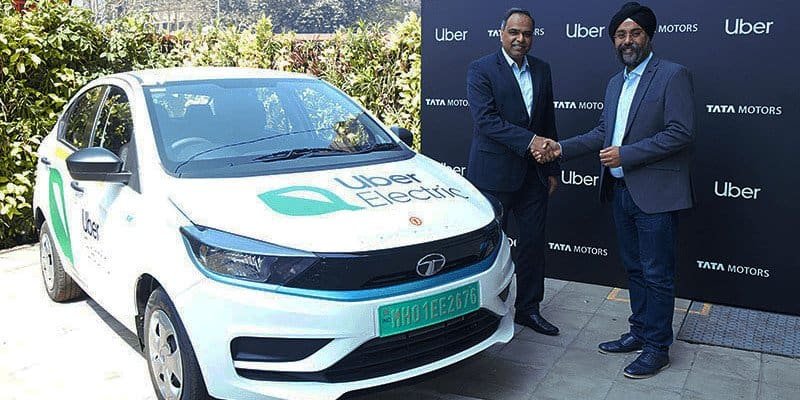Uber recently established strategic alliances with a number of electric vehicle (EV) manufacturers and groups in India. This move intends to hasten the transition to sustainable mobility among its partners. Uber wants to deploy 25,000 electric cars on its platform in India over the next two years by extending relationships with EV fleet partners such as Lithium Urban Technologies, Everest Fleet Pvt Ltd, and Moove.
In addition to these fleet collaborations, the company has partnered with Zypp Electric to introduce 10,000 EV two-wheelers in Delhi by 2024. Recognising the need for accessible financing in the EV market, the business has also worked with SIDBI to release Rs 1,000 crore in EV financing, boosting electric car uptake.
Furthermore, through Jio-bp, Uber is bringing its global collaboration with BP to India, and it has teamed with GMR Green Energy to provide fast-charging facilities for its electric vehicles.
These collaborations demonstrate Uber’s commitment to building a strong EV ecosystem and facilitating the charging infrastructure needed for mainstream EV adoption.

Uber Green will be launched in Delhi, Mumbai, and Bengaluru in June as part of its environmental initiative. Uber Green allows clients to request an all-electric, zero-emission vehicle rather than a traditional fossil-fuelled automobile. This project, which is currently available in over 100 cities across 15 countries, establishes Uber Green as the most widely available on-demand mobility solution for low or zero-emission rides.
Andrew Macdonald, Senior Vice President of Mobility and Business Operations at the company, emphasised the significance of India in the company’s electrification goals, stating, “India’s huge scale and electrification momentum makes the country a priority for it as we seek to meet our commitment to electrify every ride on our platform by 2040.”
Macdonald also mentioned India as an important area for Uber, noting that the network now has 800,000 active partners and a growing customer base. In terms of volume, India is Uber’s third-largest market, and the firm expects to continue investing in the nation to promote future growth.
Uber India and South Asia President Prabhjeet Singh acknowledged the challenge of shifting to an all-electric fleet while ensuring that the economic burden does not rest primarily on the drivers. Singh underlined the company’s commitment to taking action through these industry-leading collaborations, with the goal of facilitating a faster transition to EVs and accelerating India’s ride-sharing industry’s sustainable development.
Uber operates in 70 countries and over 10,000 cities worldwide. To meet global environmental targets, the firm has pledged to become a zero-emission mobility platform in Europe and North America by 2030, and globally by 2040.
Also Read:
- Eric Garcetti, US ambassador and Anand Mahindra enjoys a spin in Mahindra’s Electric SUV
- Simple Energy all set to launch its e-scooter on 23rd May 2023 with delivery on launch day